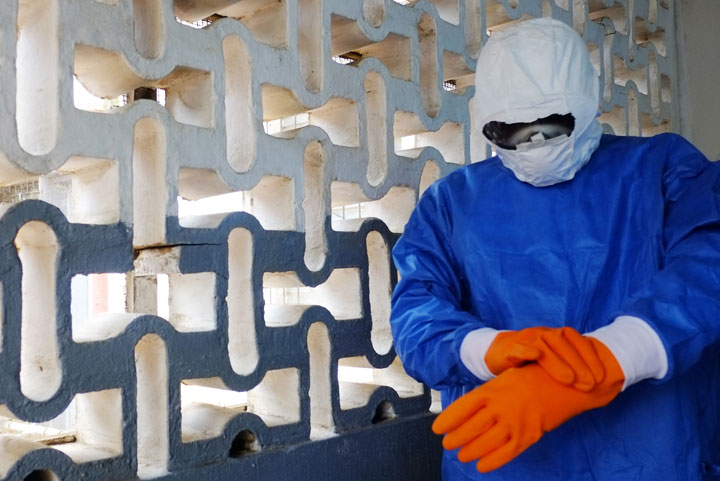DAKAR, Senegal – At least $600 million is needed to fight the current Ebola outbreak in West Africa, which has now killed more than 1,900 people, the World Health Organization announced Wednesday.

The top priority is providing protective gear to health workers in the affected areas and ensuring that they receive hazard pay, said Dr. David Nabarro, who is co-ordinating the UN response to the unprecedented outbreak.
Doctors and nurses have been especially vulnerable to Ebola because they work closely with Ebola patients, whose bodily fluids spread the virus. An American obstetrician is currently infected in Liberia, his missionary organization said Tuesday.
READ MORE: U.S. missionary who recovered from Ebola to make 1st public comments
There now have been about 3,500 cases in Liberia, Sierra Leone, Guinea, Nigeria and Senegal, WHO Director Margaret Chan confirmed.
“This outbreak is racing ahead of our control efforts,” she said.
Echoing the urgency, American officials on Wednesday warned that Ebola was likely to spread to still more countries.

Get weekly health news
“This is not an African disease. This is a virus that is a threat to all humanity,” Gayle Smith, special assistant to President Barack Obama and senior director at the National Security Council, told reporters during a telephone briefing.
READ MORE: Calls for military help in West Africa for Ebola outbreak shows its severity
Many on the ground have said there aren’t enough protective suits for health workers, who have become infected in large numbers in this outbreak. The U.S. government is “ramping up significantly” donations of protective gear, said Smith.
The key to solving the outbreak will be implementing measures used in all previous outbreaks: isolating and treating the sick, monitoring their contacts for signs of disease and safely burying the dead, said Tom Kenyon, of the U.S. Centers for Disease Control and Prevention.
He said experimental vaccines and treatments would not be available in time to make a difference.
READ MORE: Doctors group says world is ‘losing’ Ebola fight
One such experimental drug is ZMapp, which has been given to seven people so far in this outbreak. The company has said that all of its doses are now exhausted, and it will be months before more can be made.
It is also still not clear if the drug is effective, since human trials have not yet been carried out. Some of the people who received ZMapp died, while some survived.
William Pooley, a British nurse who contracted Ebola while working in Sierra Leone, was among those who received the drug. He was discharged from a London hospital on Wednesday after making a full recovery.
He said his superior care was largely responsible for his survival.
“I was very lucky in several ways: Firstly in the standard of care that I received, which is a world apart from what people are receiving in West Africa, despite various organizations’ best efforts,” Pooley told reporters. “The other difference is that my symptoms never progressed to the worst stage of the disease.”
Pooley, 29, was flown back to Britain on Aug. 24 and was cared for in a special isolation unit at the Royal Free Hospital.
READ MORE: BC-made Marburg drug works after symptoms start; good sign for Ebola drug
Cheng and Associated Press writer Gregory Katz contributed to this report from London.

Comments